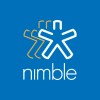Top 20 CRM Tools of 2023: Streamline Your Customer Relationships with These Must-Have Platforms
Looking for the best CRM tools to help you manage your customer relationships? Check out our list of the top CRM platforms for 2023! With these must-have tools, you can consolidate customer data from various channels and gain insights into customer behavior and preferences to personalize your marketing and sales efforts. Streamline your customer relationships and improve your business operations with the help of these top CRM tools.

Act! is the leading CRM and Marketing Automation platform that empowers small and midsize businesses to market better, sell more, and create customers for life.
Visit website➔
Apptivo, an easy CRM is the best pick for your business with multiple options that offers flexibility.
Visit website➔
Capsule is a customer relationship management (CRM) software-as-a-service web application and mobile app developed by Zestia.
Visit website➔
Creatio is a global vendor of one platform to automate workflows and CRM with no-code and a maximum degree of freedom.
Visit website➔
With Freshsales you build momentum for your sales pipeline and drive deals to closure effortlessly.
Visit website➔
HubSpot’s free CRM powers your customer support, sales, and marketing with easy-to-use features like live chat, meeting scheduling, and email tracking
Visit website➔
Insightly specializes in the fields of CRM, enterprise software, and project management. Insightly CRM aims to helps businesses in every industry build lasting customer relationships, deliver projects, and grow revenues faster.
Visit website➔
Keap is the leading small business CRM and automation platform built exclusively to help small businesses save time and grow without the chaos.
Visit website➔
Thousands of small businesses use Less Annoying CRM to manage contacts, track leads, and stay on top of follow-ups.
Visit website➔
Microsoft Dynamics CRM drives sales productivity and marketing effectiveness through social insights, business intelligence, and campaign management in the cloud, on-premises, or with a hybrid combination.
Visit website➔
A relationship-focused CRM for your entire team. Easy to use, works in your Outlook/Gmail inbox, social, web.
Visit website➔
Odoo is an open-source suite of tools including, for example, CRM, e-commerce, billing, accounting, manufacturing, warehouse, project management, and inventory management.
Visit website➔
Generate a single view of your prospects, customers, partners and vendors and give sales, marketing and support teams the real-time data they need to deliver exceptional customer experiences and drive sales.
Visit website➔
The first CRM designed by salespeople, for salespeople. Do more to grow your business.
Visit website➔
Salesforce CRM is a cloud-based customer relationship management platform that helps businesses manage their sales, marketing, and customer service activities in one central location.
Visit website➔
Scoro CRM software helps to coordinate your sales process and improve your team’s performance with a complete set of features, including sales pipeline management, project & task management, collaboration, billing, and reporting.
Visit website➔
SugarCRM connects your sales, marketing, and service teams by letting the platform do the work so they can focus on boosting productivity, business growth and engaging customers in moments that matter.
Visit website➔![WORK[etc] Logo](https://www.toolfool.guru/logos/worketc.jpg)
With integrated CRM, projects, billing, help desk, reporting and collaboration, WORK[etc] is the single cloud computing platform.
Visit website➔
Zendesk Sell is a sales CRM software tool that enhances productivity, processes, and pipeline visibility for sales teams. Eliminate friction and sell more
Visit website➔
Engage with your customers through the right channel at the right time and with the right message. With Zoho CRM you can harness the power of omni-channel presence, segmentation, KPIs, predictive intelligence, and more to deliver personalized experiences that breed customer loyalty.
Visit website➔Good to know...
What is a CRM tool and how does it work?
A CRM (Customer Relationship Management) tool is a software application that helps businesses manage their interactions with customers and potential customers. It typically includes features such as contact management, lead tracking, sales forecasting, marketing automation, and customer service tools.
CRM tools work by consolidating customer information from various channels such as email, phone, social media, and website interactions into a single database, creating a 360-degree view of the customer. This information can be used to gain insights into customer behavior and preferences, as well as to streamline business processes such as sales and marketing campaigns, customer support, and lead management.
By using a CRM tool, businesses can better understand their customers, tailor their communications and marketing efforts, and ultimately improve customer satisfaction and loyalty.
What are the benefits of using a CRM for my business?
There are several benefits of using a CRM tool for your business, including:
- Improved Customer Relationships: A CRM tool enables you to manage customer interactions in a more efficient and effective manner, allowing you to provide personalized service and support to your customers. This can lead to increased customer satisfaction, loyalty, and retention.
- Increased Sales and Revenue: With a CRM tool, you can track sales leads, monitor sales performance, and identify opportunities for cross-selling and upselling. This can help you increase sales and revenue for your business.
- Enhanced Marketing Effectiveness: A CRM tool enables you to create targeted marketing campaigns based on customer behavior and preferences, which can result in higher response rates and more qualified leads.
- Streamlined Business Processes: A CRM tool automates many manual tasks, such as data entry and lead nurturing, freeing up time for your team to focus on higher-value activities such as building relationships with customers and closing sales.
- Improved Collaboration: A CRM tool provides a centralized platform for your team to collaborate on customer interactions, share information, and coordinate activities, resulting in more effective teamwork and communication.
- Better Data Management: A CRM tool enables you to store customer information in a single location, ensuring data accuracy, consistency, and security. This can help you make better-informed business decisions and comply with data privacy regulations.
What features should I look for in a CRM tool?
The features you should look for in a CRM tool depend on your business needs, but here are some key features to consider:
- Contact Management: The ability to manage and organize customer contact information, including names, addresses, email addresses, and phone numbers.
- Lead Management: The ability to track leads and prospects through the sales funnel, including lead capture, lead scoring, and lead nurturing.
- Sales Forecasting: The ability to forecast sales revenue based on historical data and current trends.
- Marketing Automation: The ability to automate marketing campaigns, including email marketing, social media marketing, and lead generation.
- Customer Service and Support: The ability to manage customer support requests, including ticket management, knowledge base, and live chat.
- Reporting and Analytics: The ability to track and analyze customer interactions, sales performance, and other key metrics to inform business decisions.
- Mobile Access: The ability to access and update customer information and sales data from a mobile device.
- Integration with Other Tools: The ability to integrate with other business tools, such as email marketing software, accounting software, and e-commerce platforms.
- Customization: The ability to customize the CRM tool to your business needs, including branding, workflows, and data fields.
- Security and Data Privacy: The ability to protect customer data with security features such as user permissions, data encryption, and compliance with data privacy regulations such as GDPR and CCPA.
Consider which features are most important to your business and look for a CRM tool that offers those features within your budget.
What are the costs associated with implementing and using CRM software?
The costs associated with implementing and using a CRM tool can vary depending on several factors, such as the size of your business, the number of users, the features and functionality you need, and the deployment model (cloud-based or on-premise). Here are some potential costs to consider:
- Software License: The cost of purchasing the CRM software license, which can be a one-time fee or a monthly or annual subscription fee.
- Implementation and Configuration: The cost of implementing and configuring the CRM tool, which can include data migration, customization, and integration with other tools.
- Training and Support: The cost of providing training to your team on how to use the CRM tool effectively, as well as ongoing technical support.
- Add-Ons and Integrations: The cost of adding additional functionality or integrations with other tools or services, such as email marketing software or social media management tools.
- Infrastructure Costs: If you choose an on-premise deployment model, you may need to purchase and maintain hardware and software infrastructure to support the CRM tool.
- Upgrades and Maintenance: The cost of upgrading the CRM software to new versions, as well as ongoing maintenance and technical support.
The total cost of implementing and using a CRM tool can range from a few hundred dollars to thousands of dollars per year, depending on your business needs and the CRM tool you choose. Be sure to consider all potential costs and factor them into your budget when evaluating CRM solutions.
How do I integrate a CRM tool with my existing systems and processes?
Integrating a CRM tool with your existing systems and processes can help you improve efficiency, accuracy, and communication across your organization. Here are some steps to follow when integrating a CRM with your existing systems:
- Identify Existing Systems: Take stock of all the systems you currently use, such as email marketing software, accounting software, and e-commerce platforms, and identify which ones you want to integrate with your CRM tool.
- Choose Integration Method: Depending on the systems you want to integrate, there may be different integration methods available, such as pre-built integrations, API integrations, or custom integrations. Choose the integration method that best fits your needs and technical capabilities.
- Map Data Flows: Identify which data fields need to be mapped between the systems to ensure accurate data transfer and minimize data errors.
- Set Up Data Sync: Configure the integration to enable bidirectional data sync between the CRM tool and the other systems, ensuring that data is updated in real-time.
- Test and Verify: Test the integration to ensure that data is being transferred accurately and efficiently, and that all processes are functioning as intended.
- Train Users: Provide training to your team on how to use the integrated systems and processes effectively to maximize the benefits of the integration.
- Monitor and Maintain: Monitor the integration regularly to ensure that data is flowing correctly and that any issues are addressed promptly. Maintain the integration by updating it as needed and upgrading it to new versions.
Integrating a CRM tool with your existing systems and processes can take time and effort, but it can ultimately lead to significant benefits in terms of efficiency, productivity, and customer satisfaction.
How can I measure the ROI of using a CRM tool for my business?
Measuring the return on investment (ROI) of using a CRM tool for your business can be challenging, but there are several key metrics you can track to help you gauge the effectiveness of the CRM tool. Here are some potential ROI metrics to consider:
- Increased Revenue: Track the revenue generated from new and repeat customers, as well as the increase in sales conversion rates and average order value since implementing the CRM tool.
- Improved Customer Retention: Track the rate of customer retention and churn before and after implementing the CRM tool, as well as customer satisfaction levels and repeat purchase rates.
- Efficiency Gains: Track the time saved on tasks such as lead management, contact management, and customer support since implementing the CRM tool.
- Marketing Effectiveness: Track the number of leads generated, conversion rates, and marketing campaign performance since implementing the CRM tool.
- Cost Savings: Track any cost savings related to reduced manual data entry, streamlined processes, and improved customer service.
- Sales Team Performance: Track the performance of individual sales team members, such as lead conversion rates, deal size, and sales cycle length.
- ROI of CRM Tool Investment: Calculate the ROI of the CRM tool investment by subtracting the costs associated with implementing and using the CRM tool from the total benefits gained from using it.
Can CRM software help me track customer interactions across multiple channels?
Yes, CRM (Customer Relationship Management) software can help you track customer interactions across multiple channels. CRM software is designed to help businesses manage their interactions with customers and prospects, and it can do this by consolidating customer data from various channels into a centralized database.
Modern CRM systems typically offer omnichannel capabilities, which means they can integrate with different communication channels such as email, social media, live chat, phone, and more. With a CRM, you can track interactions with customers across all these channels in real-time, giving you a complete picture of their engagement with your business.
By using CRM software to track customer interactions across multiple channels, you can gain insights into customer behavior and preferences, which can help you personalize your marketing and sales efforts. You can also identify areas where you can improve your customer service and support, and make adjustments to better meet their needs.